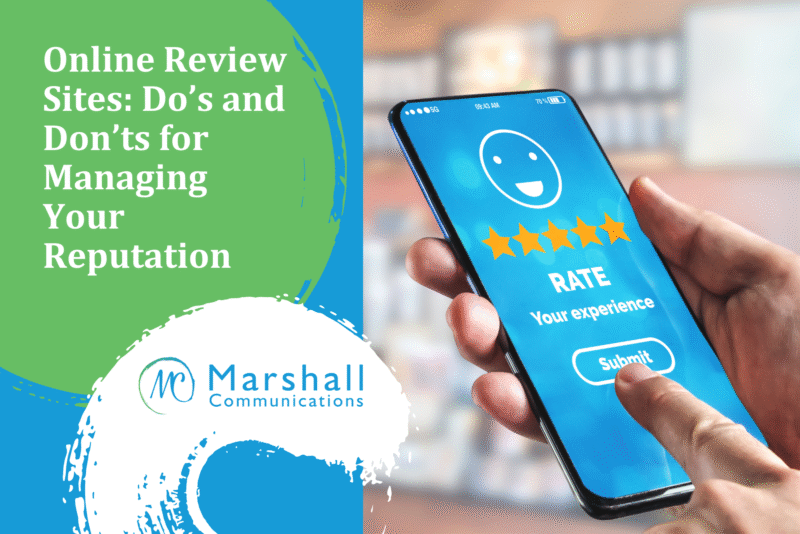Online review sites can be a double-edged sword. Glowing reviews can drive new customers to your business, while negative ones — fair or not — can hurt credibility and sales. A strong review presence is one of the most important factors influencing buying decisions today.
According to a recent study, more than 99% of consumers read online reviews before making a purchase, and reviews now influence 93% of purchasing decisions — outpacing coupons or discounts. Reviews aren’t just customer feedback — they’re a cornerstone of reputation management and local SEO.
Do’s — Best Practices for Review Management
Create and Maintain Profiles on Key Platforms
Make sure your business is visible where customers search. At a minimum, claim your Google Business Profile so you can receive Google Maps reviews. If you’re in hospitality or tourism, TripAdvisor and OpenTable are essential. For other industries, Yelp, Angi and Facebook Recommendations are key platforms.
Ask Happy Customers to Share Feedback
Don’t hesitate to encourage satisfied customers to leave reviews. Small businesses often know their best clients personally and can ask directly, while larger companies may use post-purchase surveys or follow-up emails. A well-timed request makes customers feel valued and increases your chances of receiving authentic feedback.
Monitor and Respond to Reviews Regularly
Stay on top of new reviews. Responding to both positive and negative feedback demonstrates that you care about your customers. For critical reviews, keep calm, acknowledge the concern, and explain how you plan to improve. For positive reviews, a simple “thank you” goes a long way in building loyalty.
Repurpose Positive Reviews in Marketing
Highlight your best reviews across other channels. Share snippets on social media, feature testimonials on your website and use them in advertising materials. Recognition on platforms like TripAdvisor can also elevate your credibility and help you stand out from the competition.
Don’ts — Pitfalls to Avoid
- Don’t ignore negative reviews. Silence implies indifference.
- Don’t write fake reviews. Creating false praise or negative competitor reviews is unethical and can result in hefty fines.
- Don’t offer rewards in exchange for reviews. While you can ask for feedback, incentivizing reviews violates many platforms’ policies and undermines authenticity.
- Don’t treat reviews as one-and-done. Building a reputation is ongoing — consistent engagement is key.
Leveraging Reviews for Local SEO Success
Reviews do more than build trust — they influence search rankings. On Google Maps, factors like review quantity, recency and quality can determine where your business appears in the “Local Pack.” By encouraging a steady stream of positive reviews, you improve both visibility and credibility.
Facebook Recommendations also carry weight. Since they’re shared within social networks, they can amplify reach and serve as powerful word-of-mouth marketing.
The Extra Edge: Brand Ambassadors & Social Recommendations
One way to strengthen your review strategy is to tap into brand ambassadors — loyal customers or advocates who are already enthusiastic about your business. Ambassadors can:
- Share authentic reviews on Google Maps, boosting your local SEO.
- Post Facebook Recommendations, extending your reach through their personal networks.
- Encourage others in their circles to do the same, multiplying your impact.
Ambassadors should always share genuine experiences. The goal is not scripted praise, but authentic stories that make your brand more relatable and trustworthy.
Final Thoughts
The golden rule of reputation management is authenticity. Encourage your best customers to share honest feedback, respond to all reviews with professionalism and use positive testimonials to amplify your brand. By taking a proactive approach, you can turn online reviews into one of your most powerful marketing tools.
To learn more about building your reputation through PR and marketing, visit Marshall Communications.












